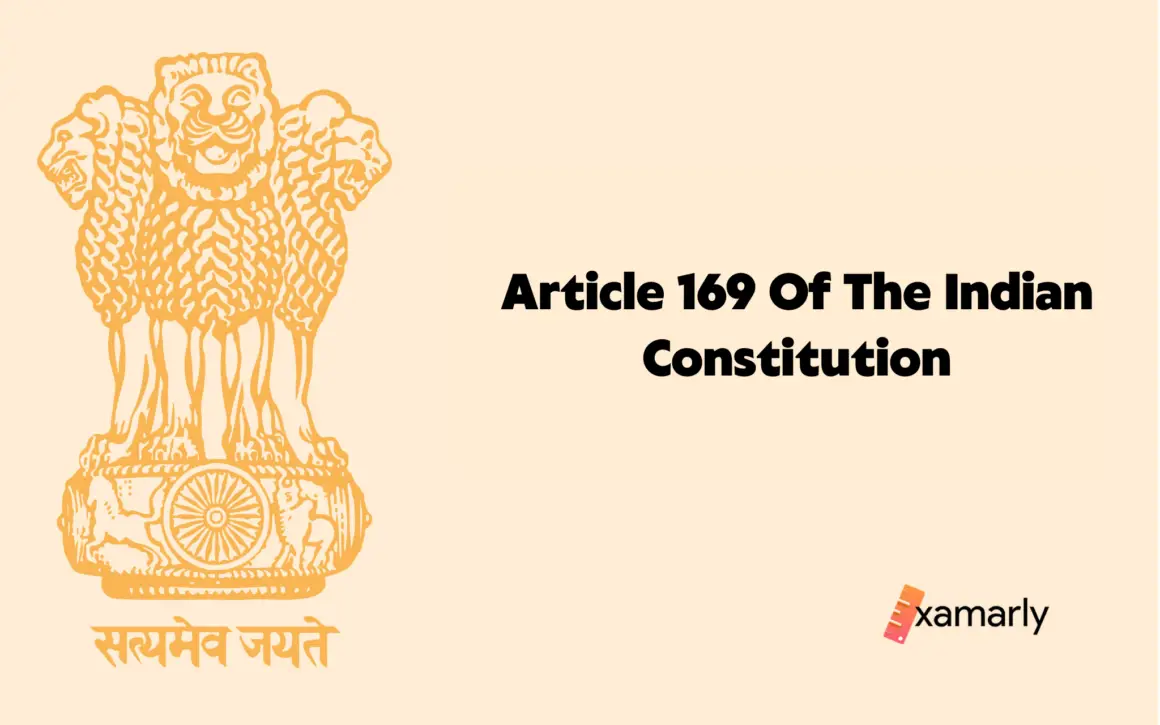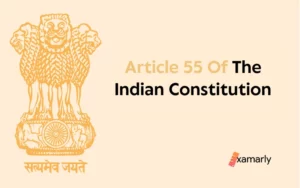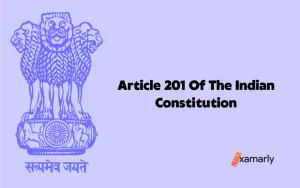Article 169 of the Indian Constitution talks about the formation and abolition of the Legislative Council of the State when it will be required.
We will dive deep into Article 169 of the Indian Constitution and grasp all the concepts delivered by the Article.
- Article 169 Of The Indian Constitution – In Detail
- Summing Up
- FAQs
- The Andhra Pradesh Legislative Council was abolished in 1985. In which year it was revived back?
- In which year legislative council of Tamilnadu was abolished?
- Functions of which body in India are limited to advisory nature only?
- The decisions of the District court are subject to what kind of jurisdiction of High Court?
- If the Government of a State fails to enforce the Directive principles of the state Policy, a citizen can move to which courts to file a writ petition to get them enforced?
- The jurisdiction of Lakshadweep comes under the?
- Andaman and Nicobar islands judiciary falls under the supervision of which of the following?
- What can be the maximum number of members in a legislative assembly of a state in India?
- What is the upper limit of election expense in a parliamentary constituency?
- In which year, the Metropolitan Council of Delhi was replaced by a 70-member legislative assembly?
Article 169 Of The Indian Constitution – In Detail
We will understand Article 169 of the Indian Constitution in detail by analysing each and every clause present in it.
Clause 1 – As it is & Explained
169. Abolition or creation of Legislative Councils in States
(1) Notwithstanding anything in Article 168, Parliament may by law provide for the abolition of the Legislative Council of a State having such a Council or for the creation of such a Council in a State having no such Council, if the Legislative Assembly of the State passes a resolution to that effect by a majority of the total membership of the Assembly and by a majority of not less than two thirds of the members of the Assembly present and voting
The first clause of Article 169 of the Indian Constitution says that, despite anything mentioned in Article 168, the Parliament has the authority to lawfully abolish the Legislative Council if required.
The Parliament can also create the Legislative Council in a state where it is not present but is needed.
Also, the above two points will only be considered if the Legislative Assembly of the State passes a resolution for the abolition or creation of the Legislative Council.
The resolution has to be passed with the majority of the total membership of the Legislative Assembly, and the majority should not be less than two-thirds of the members of the Assembly that are present in the House and are voting.
Clause 2 – As it is & Explained
(2) Any law referred to in clause ( 1 ) shall contain such provisions for the amendment of this Constitution as may be necessary to give effect to the provisions of the law and may also contain such supplemental, incidental and consequential provisions as Parliament may deem necessary
The second clause of Article 169 of the Indian Constitution says that any law that is referred to in clause (1) must include provisions for the amendment of this Constitution that may be necessary to give effect to the provisions of the law, and it may also include such supplemental, incidental, and consequential provisions as Parliament may deem necessary.
The provisions for the amendment of this Constitution must be in accordance with the requirements of clause (1).
Clause 3 – As it is & Explained
(3) No such law as aforesaid shall be deemed to be an amendment of this Constitution for the purposes of Article 368
The third clause of Article 169 of the Indian Constitution says that no such law as has been mentioned above shall be considered an amendment of the Indian Constitution for the purpose of Article 368 of the Indian Constitution.
Related – Article 163 Of The Indian Constitution
Summing Up
We can conclude from Article 169 of the Indian Constitution says that Parliament has the authority to lawfully abolish the Legislative Council if required. Parliament can also create the Legislative Council in a state where it is not present but is needed.
The above two points will only be considered if the Legislative Assembly of the State passes a resolution for abolition or creation.
FAQs
The Andhra Pradesh Legislative Council was abolished in 1985. In which year it was revived back?
The Andhra Pradesh Legislative Council got revived back in the year 2007.
In which year legislative council of Tamilnadu was abolished?
The council of Tamilnadu was abolished in the year 1986.
Functions of which body in India are limited to advisory nature only?
The functions of the Legislative Council in India are limited to advisory nature only.
The decisions of the District court are subject to what kind of jurisdiction of High Court?
The decisions of District court are subject to the Appellate jurisdiction of the High Court.
If the Government of a State fails to enforce the Directive principles of the state Policy, a citizen can move to which courts to file a writ petition to get them enforced?
If the Government of a State fails to enforce the Directive principles of the state Policy, a citizen can move no Court to file a writ petition to get them enforced.
The jurisdiction of Lakshadweep comes under the?
The jurisdiction of Lakshadweep comes under Kerala High Court.
Andaman and Nicobar islands judiciary falls under the supervision of which of the following?
Andaman and Nicobar islands judiciary falls under the supervision of a circuit bench of the Kolkata High Court sitting at Port Blair.
What can be the maximum number of members in a legislative assembly of a state in India?
The maximum number of members in a legislative assembly of a State in India is 500.
What is the upper limit of election expense in a parliamentary constituency?
The Upper of election expense in a parliamentary constituency is 70 lakhs.
In which year, the Metropolitan Council of Delhi was replaced by a 70-member legislative assembly?
The Metropolitan Council of Delhi was replaced by a 70-member legislative assembly in the year






